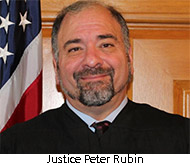Article from: www.thenewspaper.com/news/70/7021.asp
2/24/2021
Massachusetts Court Reins In Pretext Stop And Search
Appeals Court says Massachusetts traffic cops may no longer use a pretext stop to impound and search a car.
 By John F. Carr
By John F. Carr
Two favorite tactics used by traffic police in Massachusetts -- the pretext stop and the inventory search -- may no longer be automatically combined to justify an inventory search of a car stopped on a pretext under a ruling handed down earlier this month by the state Appeals Court.
In 1973, the US Supreme Court ruled in South Dakota v. Opperman that police could search cars that they had impounded based on the legal fiction that the search was for the purpose of "community caretaking" rather than law enforcement. In 1996, the high court ruled in Whren v. United States that police could stop a car for any traffic violation even if they had no real interest in enforcing traffic laws. Since then it has become routine for police to look for minor violations like touching a lane line or driving 3 MPH over the speed limit in the hopes of escalating the encounter into an incident justifying an arrest or search.
Lowell detective Juan Sandoval was on patrol the night of November 21, 2015. He described his job that night as "gang suppression through motor vehicle stops." He testified that a car driven by Lang Lek stopped past the line at a stop sign at the intersection of Wamesit Street and Central Street. Having decided to stop the car, he followed it for several blocks until it reached a street where parking was illegal (meaning the car would have to be removed if the driver was arrested). There he pulled it over. He declared Lek's license to be fake, ordered him out of the car, and immediately began searching it.
Although there would have been reasonable cause to arrest Lek, the Appeals Court noted that he had not yet been arrested and had not been given an opportunity to arrange for the car's owner to pick it up. The court also noted that the inventory search was obviously solely for the purpose of law enforcement.
"In this case, where the initial traffic stop was a pretext for investigating certain preselected individuals as part of a police operation to suppress gang activity, where the interaction with the defendant confirmed that the defendant was in fact affiliated with a gang, and Detective Sandoval deliberately failed to inform the defendant that he was under arrest or that his vehicle was being impounded prior to searching it, the commonwealth cannot meet its burden to show that that search -- even if otherwise permissible -- was not tainted with an investigatory purpose," Justice Peter J. Rubin wrote for the three-judge panel.
Thus the legal fiction of "community caretaking" had been disproved, and the court threw out the evidence found in the illegal search. Constrained by a recent decision of the Supreme Judicial Court of Massachusetts allowing pretext stops the judges could go no further. They did warn Lowell police to be prepared to prove their policies were non-discriminatory the next time they made a pretext stop.
A copy of the ruling is available in a 100k PDF file at the source link below.
Source: Massachusetts v. Lek (Massachusetts Appeals Court, 2/11/2021)
Permanent Link for this item
Return to Front Page
 By John F. Carr
By John F. Carr